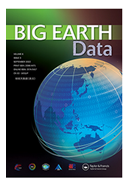Project Description

The major uncertainties are related to in Earth system science and understanding the land – atmosphere interactions and feedbacks in the boreal forests of Arctic Regions and High Mountain Asia (HMA), e.g., urban areas and sustainable development in the Arctic and Northern Eurasian. The questions of scientific interest include: climate change, air quality, biodiversity loss, environmental risks such as forest fires, freshwater and use of natural resources and their effects to environment, and United Nations Sustainable Development Goals (UN SDGs). The availability of big data, both in situ and space borne observations, and the further development of the high-quality research infrastructures and in situ stations are seen as a major issue for the capability to solve the scientific issues. The most urgent risks related to the atmospheric and the land systems are changing climate – air quality interactions, air pollution, changing monsoon dynamics, land degradation, and the melting of glaciers in High Mountain Asia. Finding solutions for these questions are contributing the global sustainability issues e.g UN SDGs, especially the SDG-13 Climate Actions.
One of fundamental assets is the availability of comprehensive ground-based observations together with Earth observation data. The Digital Belt and Road (DBAR) (http://www.dbeltroad.org/) and the Pan-Eurasian Experiment (PEEX) (www.atm.helsinki.fi/peex) are multi-disciplinary, multi-scale and multi-component research programmes.
The DBAR and PEEX have joint interests on monitoring on ecological environment, urbanization, cultural heritages, coastal zones, and arctic cold regions supporting the sustainable development of the Arctic-boreal region and High Mountain Asia (HMA). In this special issue we introduce the research data asset and research infrastructures relevant to these regions and open special issue in Big Earth Data in 2022-2023. A major part of the papers builds on the DBAR – PEEX collaboration, including the 6th DBAR science conference on 6-9, September 2022. The papers are contributing to research agenda(s) by DBAR Science Plan (http://www.dbeltroad.org/index.php?m=content&c=index&a=down&fileurl=/2018/0131/20180131025443546.pdf|&filename=DBAR-Science-Plan-En-Release) and the PEEX Science Plan (www.atm.helsinki.fi/peex/images/PEEX_Science_Plan.pdf). In addition, PEEX is an integral part to the Arctic research community by U-Arctic thematic network “Arctic – boreal hub” (www.uarctic.org/organization/thematic-networks/arctic-boreal-hub/) coordinated by INAR Univ.Helsinki. The DBAR-PEEX special issue in Big Earth Data is open for all submissions within these frameworks.
Potential topics include (but are not limited to) the following:
– air quality, atmospheric composition, atmospheric aerosols
– environmental risks, forest fires, biodiversity loss
– precipitation, climate and environmental change
– snow and ice over land and Arctic Ocean
– carbon neutrality
– research infrastructures, remote sensing and SDGSAT-1
– big data, satellite observations and in-situ measurement
– US SDGs for Arctic and high altitude and high latitude cold regions in Eurasia and Arctic
Important Dates
– DBAR conference in Sep 2022 abstracts, welcomed to be submit to the special issue
– February 28, 2023 – Paper submission online
– March 31, 2023 – Decision to authors
– April 30 , 2023 – Revised paper submission
– June 30, 2023 – Publication
Manuscript Submission Information
– Instructions for Authors at: https://www.tandfonline.com/action/authorSubmission?show=instructions&journalCode=tbed20
– Submission are made through the Taylor & Francis Submission Portal, ensuring that you select the appropriate Special Issue. Publication charges (APCs) will be waived for invited manuscripts submitted to Big Earth Data. Authors who need a waiver code should contact the Editorial Office (guanll(at)aircas.ac.cn) before submitting.
Keywords/phrases for this Special Issue Call for Papers
climate change, air quality, atmospheric composition, land – atmosphere interaction and feedbacks, cold regions, urbanization, environmental monitoring, UN SDGs
Brief summary of this Special Issue Call for Papers
The remote sensing and in-situ data and infrastructure in Arctic Boreal Forest and high mountain Asia and Arctic cold regions are proving big data, which is the basis for the new science-based knowledge needed for decision making addressing the UN SDGs on climate actions.
Special Issue Guest Editors:
Dr. Docent Hanna Lappalainen, University of Helsinki, FI, hanna.k.lappalainen(at)helsinki.fi
Prof. Yubao Qiu, CBAS, qiuyb(at)cbas.ac.cn
Dr., Senior Research, Anu-Maija Sundsröm, Finnish Meteorological Institute, FI, anu-maija.sundstrom(at)fmi.fi
Prof. Lanhai LI, CBAS, lilh(at)ms.xjb.ac.cn
Prof. Veli-Matti Kerminen, University of Helsinki FI, veli-matti.kerminen(at)helsinki.fi
Prof. Xiao Cheng, Sun Yat-sen University, chengxiao9(at)mail.sysu.edu.cn
